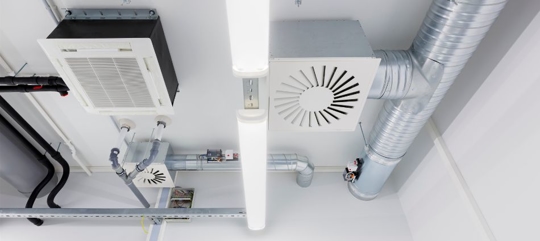Send us an email
Please enter your name and contact info.
Please enter your name and contact info.
Call Us Today! (850) 748-1066

Serving Families Throughout Pensacola

As our reliance on heating, ventilation, and air conditioning (HVAC) systems grows, so does the importance of improving their energy efficiency. High-efficiency HVAC systems are revolutionizing how we heat and cool our homes and workplaces, offering significant advantages in cost savings, environmental impact, and improved indoor air quality. This comprehensive guide delves into everything you need to know about high-efficiency HVAC systems.
HVAC stands for Heating, Ventilation, and Air Conditioning – the technology responsible for ensuring indoor environmental comfort. Whether it’s a small home or a large commercial complex, HVAC systems are an integral part of our lives. They heat, cool, and ventilate our living spaces, ensuring we remain comfortable throughout the seasons.
High-efficiency HVAC systems are advanced versions of standard HVAC systems, designed to provide the same level of comfort while using less energy. They are characterized by their high Seasonal Energy Efficiency Ratio (SEER), Energy Efficiency Ratio (EER), Heating Seasonal Performance Factor (HSPF), and Annual Fuel Utilization Efficiency (AFUE) ratings – all indicators of superior energy efficiency.
The benefits of high-efficiency HVAC systems are manifold:
By operating more efficiently, these systems consume less energy, reducing the demand for natural resources.
Despite higher upfront costs, long-term energy savings result in lower utility bills.
High-efficiency systems are typically more durable and have longer lifespans, saving replacement and repair costs.
By reducing energy consumption, high-efficiency HVAC systems decrease greenhouse gas emissions, contributing to a healthier planet.
High-efficiency HVAC systems employ advanced technologies like variable speed technology, which allows the system to adjust its output based on the needs of the building and zoned HVAC systems, which allow you to control temperatures in different parts of your home independently. Furthermore, programmable thermostats offer increased control over your system, optimizing its operation for peak times and temperatures.
The energy efficiency of HVAC systems is not only a concern for homeowners and businesses but also for governments. Federal and state governments often have energy efficiency standards that HVAC systems must meet. They also provide tax credits, rebates, and other incentives to promote the use of high-efficiency HVAC systems.
Choosing the right high-efficiency HVAC system involves considering several factors, such as your building’s size, your local climate, and the system’s SEER, EER, HSPF, and AFUE ratings. Consulting with a qualified HVAC professional can ensure that you select a system that best suits your specific needs.
Reviews and case studies of high-efficiency HVAC systems demonstrate their potential for energy savings and improved comfort. They provide valuable insights into their real-life performance and benefits, making them a valuable resource for anyone considering the switch to a high-efficiency system.
High-efficiency HVAC systems are a smart investment for anyone seeking to reduce their environmental footprint and save on energy costs. As technology continues to evolve, these systems are set to become the new norm in heating and cooling. Understanding what they are and how they work is the first step toward a more sustainable and comfortable future.
The post Demystifying High-Efficiency HVAC: A Comprehensive Guide to Energy-Efficient Heating and Cooling Systems appeared first on Diamond Air Design.